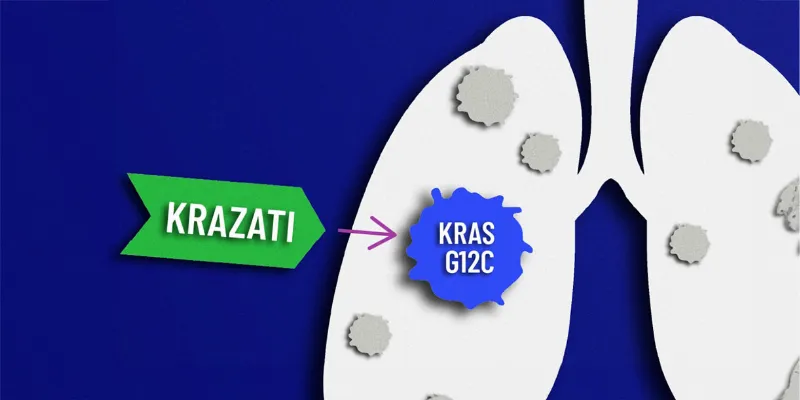Innovative Cancer Drug Krazati Wins UK Approval for Lung Cancer Treatment

3 November 2023
The UK's MHRA has approved Krazati, a new targeted therapy by Mirati Therapeutics for advanced non-small cell lung cancer with the KRAS G12C mutation. This offers fresh hope for patients who haven't responded to traditional treatments, promising to improve outcomes in a challenging area of cancer care.
The fight against lung cancer has received a significant boost as the Medicines and Healthcare products Regulatory Agency (MHRA) authorises a groundbreaking new therapy, Krazati (adagrasib), for use in adults with a specific type of non-small cell lung cancer (NSCLC).
Developed by Mirati Therapeutics, Inc., Krazati is designed to target the KRAS G12C mutation found in a subset of NSCLC, which is the most common lung cancer type, representing about 80-85% of cases. This mutation, which produces a rare protein causing uncontrolled cell growth, is present in approximately 14% of patients with lung adenocarcinoma and has been historically challenging to treat.
Krazati comes as a ray of hope for those whose cancer has advanced or spread and who have not responded to traditional therapies such as platinum-based chemotherapy and anti-PD-1/PD-L1 immunotherapy.
"KRAZATI offers a compelling therapeutic option for patients with previously treated locally advanced NSCLC with a KRASG12C mutation. MHRA's authorization is a significant step towards improving the options available for patients and clinicians in Great Britain. We are encouraged by the opportunity to bring KRAZATI, a potential best-in-class treatment to qualified patients," said Alan Sandler, M.D., chief medical officer, Mirati Therapeutics, Inc.
The oral small-molecule inhibitor demonstrates a high degree of selectivity and potency, with the ability to penetrate the central nervous system (CNS), a crucial feature considering the high incidence of CNS metastases in NSCLC patients which often leads to a poor prognosis. Its design aims to sustain inhibition of the KRAS G12C protein, which regenerates every 24−48 hours.
"Fourteen percent of people living with NSCLC harbour the KRASG12C mutation yet there are limited targeted treatment options for patients with this devastating disease. The expansion of treatment options for NSCLC benefits patients and clinicians alike. As someone intensively involved in the management of lung cancer patients, I look forward to KRAZATI being available for use in clinical practice," said Dr Shobhit Baijal, Medical Oncologist of The University Hospital Birmingham.
Mirati's Krazati is available in a 200mg tablet form, to be taken as three tablets twice daily at the same times. While this new treatment offers a robust option for lung cancer therapy, patients should be aware of the possible side effects, which range from low red blood cell counts and sodium levels to kidney problems and fluid retention.
Clinical trials, particularly the KRYSTAL-1 study, an open-label Phase 1/2 trial, have evaluated the efficacy of Krazati both as a monotherapy and in combination with other cancer treatments. The results have been promising, marking a significant step forward in managing NSCLC.
About KRAZATI (adagrasib)
Mirati has risen to meet one of the most challenging mutations in cancer research by developing KRAZATI, a highly selective and potent oral small-molecule inhibitor of KRASG12C. Intentionally designed to meet the challenge of KRASG12C, adagrasib is optimized to sustain target inhibition, an attribute that could be important to treat KRASG12C-mutated cancers, as the KRASG12C protein regenerates every 24−48 hours.1 Adagrasib has shown clinically to be a CNS penetrant, which may be important given that CNS metastases frequently occur in NSCLC and lead to poor prognosis.











Comments
No Comments Yet!